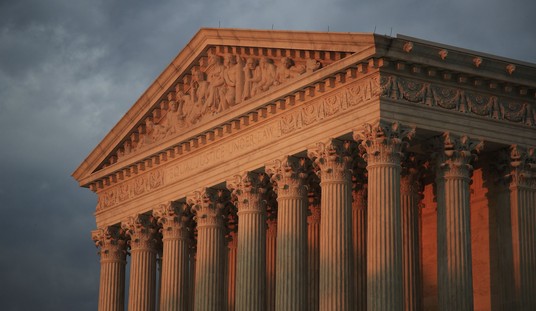In President Barack Obama's egocentric world, everything -- civil war in Syria, Russian power grabs in Ukraine, Chinese claims to Vietnamese and Japanese territory in the South China Sea, and peace in the Middle East -- revolves around him. Has there ever been a more self-absorbed commander in chief in our nation's history? Not that one could imagine listening to the president talk this week about his role -- and, by extension, the role of the United States of America -- in the world.
The president took the occasion of the commencement address to West Point on Wednesday to define the Obama Doctrine, which occupies pretty much any position the president deems fit on any given foreign policy or defense issue at any given time, including reversing a position when he feels like it.
We've come to expect U.S. presidents to adopt eponymous doctrines in foreign affairs. President Monroe warned Europe that the United States would not tolerate European meddling in our hemisphere in the 19th century. After World War II, President Truman warned the Soviets that the United States would not allow the spread of communism into Greece and Turkey, and promised economic, political and military aid to those under threat of Soviet aggression.
The Truman Doctrine was the beginning of the global fight on the part of the United States and its allies against the spread of communism. The Reagan Doctrine extended the Truman Doctrine to provide U.S. assistance to anti-communist guerilla movements primarily in Africa and Latin America during the 1980s.
Faced with a new kind of threat from Islamist terrorism, President George W. Bush established a new policy that staked out the United States' right to protect itself from attack with preventive war. The Bush Doctrine, most often associated with the wars in Afghanistan and Iraq, made clear that "the first duty of the United States government remains what it always has been: to protect the American people and American interests. It is an enduring American principle that this duty obligates the government to anticipate and counter threats, using all elements of national power, before the threats can do grave damage."
Recommended
So what is the Obama Doctrine? Well ... it depends. "American isolationism is not an option," the president proclaims. But then again, "to say that we have an interest in pursuing peace and freedom beyond our borders is not to say that every problem has a military solution," according to the president. Or as he put it more graphically, "Just because we have the best hammer does not mean that every problem is a nail."
But when it comes to stating guiding principles and what issues are at stake, Obama is more adept at setting up straw men than articulating clear policy. The president says he believes that terrorism is still the major threat America faces, but then adds, "A strategy that involves invading every country that harbors terrorist networks is naive and unsustainable." Has anyone ever suggested such a strategy?
But perhaps the president's most disingenuous invocation of the Obama Doctrine in his West Point speech involved Syria. The civil war there so far has cost more than 150,000 lives, has forced more than 2.5 million Syrians to flee, and has served as a major recruiting and training ground for Islamist jihadists on both sides of the conflict, with Iranian support for the Bashar al-Assad regime and al-Qaida fighters joining the ranks of those opposing the regime. Despite the administration's claims to have forced the regime to destroy its chemical weapons, new reports suggest that Assad forces used chlorine bombs against civilians in rebel-held territory in April.
So what is the president's response regarding his feckless action on Syria to date? "As president, I made a decision that we should not put American troops into the middle of this increasingly sectarian war, and I believe that is the right decision." Who exactly ever proposed sending U.S. troops to fight in Syria? No one.
"American influence is always stronger when we lead by example," the president told West Point graduates. He's right about that -- but his example has been a poor model on which to base foreign policy. He intervenes when he feels like it, with little or no consultation: In Libya, he used military assets; in Egypt, his words encouraged the ouster of a troublesome partner. Yet he does little or nothing to help freedom fighters in Iran or Syria, despite drawing red lines in the sand with the latter and cozying up to wolves in sheep's clothing with the former.
Forget about doctrines. Obama might as well employ a Ouija board to dictate his policy.
























Join the conversation as a VIP Member